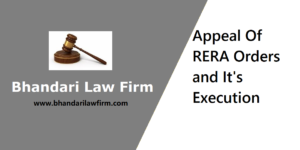Jurisdiction Of Civil Courts In India
Jurisdiction Of Civil Courts In India is the authority that is granted to a formally constituted legal body deal with and adjudicate legal matters and to administer justice within a defined area of responsibility.Jurisdiction means authority to decide as held in the case of Ujjan Bai v. State of U.P. AIR 1962 SC 162.
Jurisdiction of Civil Court In India can be broadly classified into:
-
Subject matter jurisdiction
-
Pecuniary Jurisdiction
-
Territorial Jurisdiction
Section 9 of The Civil Procedure Code, 1908 provides maximum extent of jurisdiction to the civil courts in India. It says, a civil court can to hear a suit if these two conditions are fulfilled:
- The suit must be of a civil nature;
- The cognizance of such a suit should not have been expressly or impliedly barred.
Jurisdiction Of Civil Courts In India
Sections 15-20 in the CPC provides for the jurisdiction of civil courts further; they are discussed below individually: – Jurisdiction Of Civil Courts In India
Section 15– Every suit shall be instituted in the Court of the lowest grade which is competent to try it. This provision requires that a party must bring his suit in the court of the lowest grade which is competent to try it is; so that the courts of higher grade are not overcrowded with puny disputes. In case such cases are brought to the high courts or supreme court, theycan turn down the plaint and sent it over to be presented to the court of the lowest grade that is competent to try it.
A suit is of a civil nature when the question of law and fact therein relates to the determination of one’s civil right and its enforcement. It will cover private rights and obligations of a citizen.A suit is ‘expressly barred’if it is barred by any enactment in force. A legislature can bar the jurisdiction of civil courts with respect to a particular class of suits of a civil nature without violating the constitutional mandates; and a suit is said to be impliedly barred if it is barred by the general principles of law.
Section 16 – this section says that subject to the pecuniary, that means monetary limitations and other limitations; the suits regarding immovable property are to be instituted in the court within whose local jurisdiction the property is situate.
(a) For the recovery of immovable property with or without rent or profits,
(b) For the partition of immovable property,
(c) For foreclosure, sale or redemption in the case of a mortgage of or charge upon immovable property.
(d) For the determination of any other right to or interest in immovable property,
(e) For compensation for wrong to immovable property.
(f) For the recovery of movable property actually under distraint or attachment, shall be instituted in the Court within the local limits of whose jurisdiction the property is situated
The proviso to this, states that where a suit is to obtain relief in respect of immovable property can be entirely obtained through the personal obedience of the defendant.
Such a suit may be instituted either within the local limits of the court where the property is situated or in the court within whose jurisdiction the defendant resides, or carries on business, or personally works for gain.
Illustration: Suppose the plaintiff has purchased from the defendant, a plant that is located at ‘Q’ by sale deed executed and registered at ‘D’. Consideration was paid at ‘D’. Suit was filed for “storage charges” of goods belonging to defendant lying at plant. There was a suit for damages to immovable property.
The suit filed at ‘D’ is not maintainable where the defendant had no principal office but only a subordinate office at ‘D’. But the claim by Defendant was maintainable because plaintiff had principal office at ‘D’.
Section 17– This section has the object to prevent multiplicity of suits, but it does not bar the parties bringing successive suits where the properties are situated in different jurisdictions.A suit to obtain relief respecting, or compensation for wrong to, immovable property which is situated within the jurisdiction of different courts may be instituted in any of the courts within the local limits of whose jurisdiction any portion of the property is situate, provided that in respect of the value of the subject-matter of the suit, the entire claim is cognizable by such court.
(Read More About Our Civil Practice)
Section 18-This section provides for that the place of institution of suit where the local limits of jurisdiction of Courts are uncertain:
- If alleged to be uncertain within the local limits of the jurisdiction of which of two or more Courts any immovable property is situated, any one of such Courts may, if satisfied that there exists ground for the alleged uncertainty, record a statement and proceed to entertain and dispose of any suit relating to that property, and its decree in the suit shall have the same effect as the property were situate within the local limits of its jurisdiction:
Provided that the suit is one with respect to which the Court competent as regards the nature and value of the suit to exercise jurisdiction.
- If the statement has not been recorded under sub-section (1), and an objection is taken before an Appellate or Revisional Court at a decree or order in a suit relating to such property was made by a Court not having jurisdiction where the property is situate, those courts shall not allow the objection unless in its opinion they think there was, that at the time of the institution of the suit, there was no reasonable ground for uncertainty as to the Court having jurisdiction with respect thereto and there has been a consequent failure of Justice.
Section 19 – It provides for the suits for compensation for wrongs to person or movable property, in such a case, if the wrong was done within the local limits of the jurisdiction of one Court and the defendant resides, or carries on business or personally works for gain, within the local limits of the jurisdiction of another Court, the suit may be instituted at the option of the plaintiff in either of the said Courts.
Section 20 – This Section provides that subject to the limitations every suit shall be instituted in a Court within the local limits of whose jurisdiction:
- The defendant, or each of the defendants where there are more than one, at the time of the commencement of the suit, actually and voluntarily resides, or carries on business, or personally works for gain; or
- Any of the defendants, where there are more than one, at the time of the commencement of the suit, actually and voluntarily resides, or carries on business, or personally works for gain, provided that in such case either the leave of the Court is given, or the defendants who do not reside, or carry on business, or personally work for gain, as aforesaid, acquiesce in such institution;
- Where the cause of action, wholly or in part, arises; which means the cause or the set of circumstances which led to the suit in the court of law.
Lastly, there are bars in the CPC that are limitations created upon the jurisdiction of the civil courts; they are: Absolute Bars, Conditional Bars, Special bars.
Author: This article was written by Richaa Mukhopadhyay, B.A. LLB(Hons), CS(executive), ALSK, ICSI, student of Amity Law School, Amity University, Kolkata.
Note: For any further information or any query you may contact us on 9855677966 or via email info@bhandarilawfirm.com



